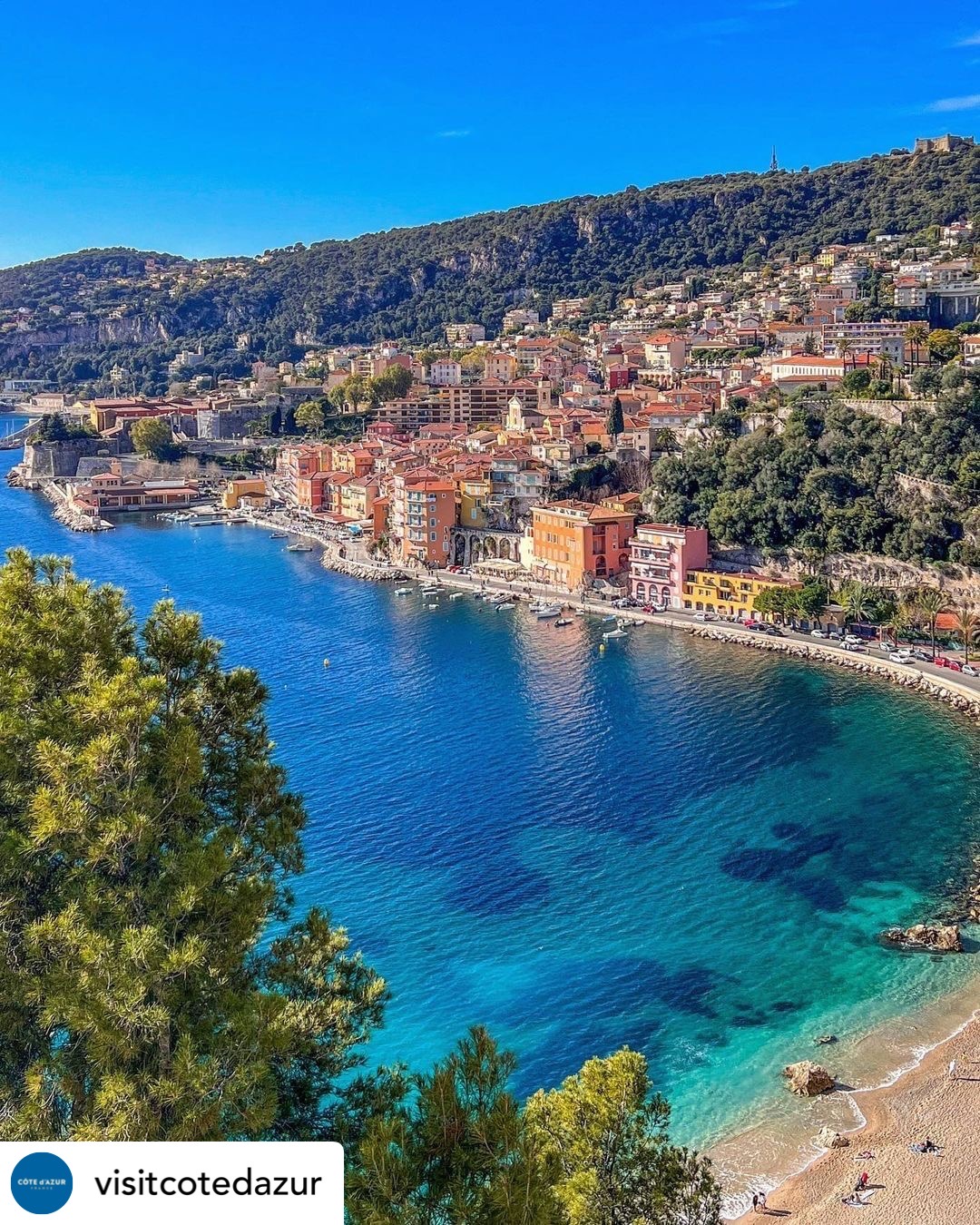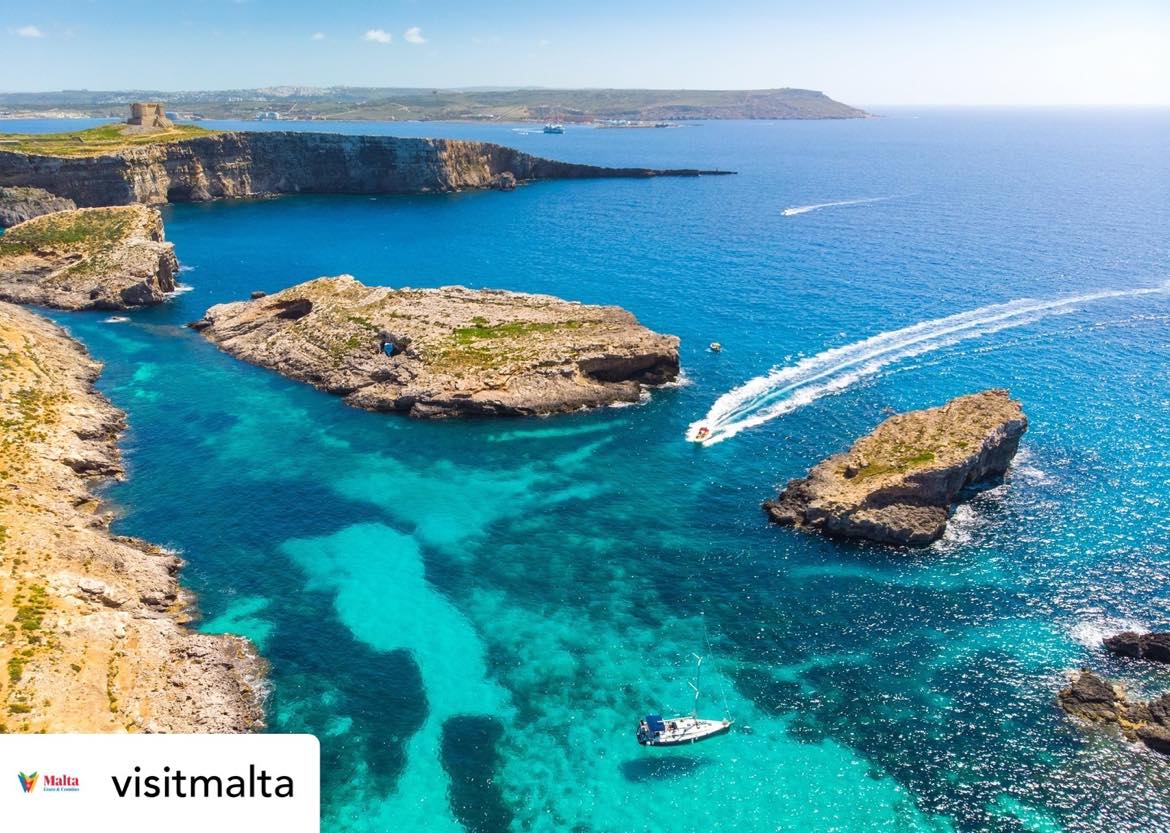The latest travel restrictions for yacht crew heading to the Med hot-spots
Blue Marine Travel is a privately owned marine travel company, located in the UK. Yachties travel to multiple destinations on a regular basis, which means having to stay informed of the latest travel restrictions worldwide. This is where blue marine can help by providing guidance and support when needed. Founded by Lee Baldwin over 18 years ago, the company now offers 6+ travel services including Visa assistance, multicurrency quotations, billing, and ground transportation. And now they’re here to bring you the latest travel restrictions in the Med:
France

EU passport holders travelling from within the EU to France
- Travel is allowed without the need to quarantine
- Vaccinated travelers are not required to have a COVID-19 test result before traveling to France.
- Fully vaccinated travelers must have proof of vaccination to enter France. Only vaccines authorized by the European Medicines Agency (EMA) are accepted. These are Pfizer (Comirnaty), Moderna, AstraZeneca (Vaxzevria), AstraZeneca (Covishield), and Johnson & Johnson (Janssen) – Travelers who are eligible for the EU Digital COVID-19 Certificate or equivalent may use it to present proof.
- French authorities also accept the following vaccine combinations: AstraZeneca/Pfizer Cominarty – AstraZeneca/Moderna and Pfizer/Moderna.
- Mandatory health pass is needed in public spaces – This can be downloaded from both IOS and Android Store, titled ‘TousAntiCovid’
Non-EU passport holders travelling to France from outside the EU
- The only difference to the above is that non-EU passengers will need to complete a health declaration for arrival in France. Please see the link – 12-02-2022-engagement-sur-l-honneur-orange.docx (live.com)
Italy

EU passport holders travelling from within the EU to Italy
- Travel is allowed without the need to quarantine
- Vaccinated travellers are not required to have a COVID-19 test result before traveling to Italy.
- Fully vaccinated travelers must have proof of having received the full course of vaccination with a vaccine approved by the European Medicines Agency, a minimum of 14 days before travel, and a maximum of 270 days (9 months) before traveling to Italy. The vaccine proof MUST be written in Italian, English, French, or Spanish.
- Vaccines accepted are Comirnaty by Pfizer-BioNTech, Moderna, Vaxzevria, Janssen (Johnson & Johnson), Nuvaxovid (Novavax), Covishield (Serum Institute of India), R-CoVI (R-Pharm), COVID-19 vaccine-recombinant (Fiocruz). Those who took a different vaccine as a second shot are considered fully vaccinated.
- Mandatory health pass is needed for public settings, more information can be found at the following website – Covid-19, frequently asked questions and table of permitted activities | www.governo.it
Non-EU passport holders travelling to Italy from outside EU
- There are no different rules for third-country travellers entering Italy. The rules are currently the same as EU passport holders
Spain

EU passport holders travelling from within the EU to Spain
- Travelers arriving from the EU who are residents of these countries are allowed to enter Spain, provided that they come directly from them, have transited exclusively through other countries within the EU.
- Vaccinated travelers are not required to have a negative COVID-19 test result before traveling to Spain.
- Travellers are recommended to download the contact tracing app RadarCOVID app when entering Spain.
- Travellers arriving in Spain are to complete the following health form – find it on Spain Travel Health
- All travelers must pass through health checks including temperature checks on arrival in Spain
Non-EU passport holders travelling to Spain from outside EU
- The same rules apply as per above for EU passport holders except for the following:
- Travellers arriving in Spain have to complete a mandatory travel declaration at most a maximum of 24 hours before departure. This can be found at the following website – Viajeros coronavirus (sergas.gal)
Croatia

EU passport holders travelling from within the EU to Croatia
- Travel is allowed without the need to quarantine
- Vaccinated travellers are not required to have a COVID-19 test result before traveling to Croatia.
- Travelers who are fully vaccinated must present a vaccination certificate. Travelers are considered fully vaccinated if they: -Received the second dose (Pfizer, Moderna, AstraZeneca, Gamaleya, Sinopharm, Covishield, Covaxin, Sinovac/CoronaVac) or the first dose in the case of vaccination with a single dose vaccine (Janssen/Johnson&Johnson) received in 270 days, provided that 14 days have passed since they received the single dose.
- Travelers with a medical certificate confirming recovery from COVID-19 and have received 1 dose of Pfizer, Moderna, AstraZeneca, Gamaleya, Sinopharm in the last 8 months from contracting COVID-19, provided that the vaccine was administered less than 270 days from their arrival; -Travelers received the first dose of Pfizer, Moderna, or Gamaleya, with which it is possible to enter Croatia in the period from the 22nd to the 42nd day of receipt of the vaccine, or from the 22nd to the 84th day of receipt of the first dose of AstraZeneca.
Non-EU Passport holders travelling to Croatia from outside EU
Non-EU passport holders are not allowed to enter Croatia unless they fall under the exempted category. Seafarers provided travelling to join a vessel are exempt provided they are staying longer than 12 hours and can fulfill the following requirements:
- A negative PCR test result or rapid antigen test result – RAT for SARS-CoV-2, where the RAT test must be listed in the Common list of rapid antigen tests recognized by the Member States of the European Union, published by the European Commission. If the RAT test results were made abroad, the manufacturer and/or the commercial name of the test must be visible. Otherwise, it will not be accepted as credible for entering the Republic of Croatia. The PCR test result must not be older than 72 hours and the RAT test result must not be older than 24 hours, counting from the time the test was taken until the arrival at the border crossing point.
- A certificate that they have received two doses of vaccine used in the EU Member States (Pfizer, Moderna, AstaZeneca, Gamaleya, Sinopharm, Novavax) or vaccines approved by the World Health Organization for emergency use (Serum Institute of India – Covishield, Bharat Biotech – Covaxin, Sinovac – CoronaVac) not older than 270 days, provided that 14 days have passed since receiving the second dose of the vaccine, or a certificate that they have received one dose of the vaccine if the vaccine is administered in a single dose (Janssen/Johnson&Johnson) not older than 270 days, provided that 14 days have passed since they received the single dose, or a certificate that they have received the booster dose of the vaccine.
- A certificate showing that they have recovered from COVID-19 and have received one dose of vaccine used in EU Member States (Pfizer, Moderna, AstaZeneca, Gamaleya, Sinopharm, Novavax, Janssen/Johnson&Johnson) or a vaccine approved by the World Health Organization for emergency use (Serum Institute of India – Covishield, Bharat Biotech – Covaxin, Sinovac – CoronaVac), provided that 14 days have passed since they received the single dose within eight months from contracting the disease, provided that the vaccine was administered less than 270 days from their arrival at the border crossing point.
- A positive PCR test result or rapid antigen test result, confirming that the holder recovered from the SARS-CoV-2 virus infection, which was performed in the previous 180 days and which is older than 11 days from the date of arrival at the border crossing point, or a medical certificate of recovery.
- Or, if they perform PCR testing or rapid antigen testing – RAT for SARS-CoV-2 immediately upon their arrival in the Republic of Croatia (at their own expense), with the obligation to stay in self-isolation until they obtain a negative test result. In case they cannot get tested, they have to self-isolate for seven (7) days.
Malta

EU passport holders travelling from within the EU to Malta
- Travel is allowed without the need to quarantine provided travelling and or transiting through other EU countries
- Vaccinated travellers are not required to have a COVID-19 test result before traveling to Italy.
- Fully vaccinated travelers must have a valid vaccination certificate showing they have received all vaccine doses required before traveling to Malta. Travelers must have received EMA-approved vaccines recognized by Maltese Public Health. These are Comirnaty (Pfizer), Jannsen (Johnson & Johnson), Spikevax (Moderna), Vaxzevria (AstraZeneca), and Nuvaxovid (NVX – CoV2373). A certificate with 2 different EMA-approved vaccines is accepted as valid. Vaccine certificates with all doses from a WHO-approved vaccine are also valid as long as the traveler has also received a booster dose of an EMA-approved vaccine.
- Maltese travelers aged 18 years and older must have received the last dose at least 14 days and no more than 3 months before travel. Alternatively, they can have all doses required and a booster with the last dose of booster administered not more than 9 months before travel.
Non-EU Passport holders travelling to Malta from outside EU
Travelers who have been in the following countries in the past 14 days before travel are not allowed to enter Malta:
- South Africa , Afghanistan, Algeria, Angola, Anguilla, Antigua and Barbuda, Aruba, Bahamas, Bangladesh, Barbados, Benin, Bolivia, Bonaire, Sint Eustatius and Saba, Bosnia and Herzegovina, Botswana, Brazil, British Indian Ocean Territory, British Virgin Islands, Brunei, Burkina Faso, Burundi, Cambodia, Cameroon, Central African Republic, Chad, Christmas Island, Cocos (Keeling) Islands, Comoros, Congo, Cook Islands, Costa Rica, Curaçao, Democratic Republic of the Congo, Dominica, Dominican Republic, East Timor, Ecuador, Egypt, El Salvador, Eritrea, Eswatini, Ethiopia, French Guiana, French Polynesia, Gambia, Ghana, Greenland, Grenada, Guadeloupe, Guatemala, Guernsey, Guinea, Guinea-Bissau, Guyana, Haiti, Honduras, Isle of Man, Ivory Coast, Jersey, Kazakhstan, Kenya, Kiribati, Kyrgyzstan, Laos, Lesotho, Liberia, Madagascar, Malawi, Mali, Marshall Islands, Martinique, Mauritius, Mayotte, Mexico, Micronesia, Mongolia, Montenegro, Montserrat, Mozambique, Namibia, Nauru, Nepal, New Caledonia, Nicaragua, Niger, Nigeria, Niue, Norfolk Island, Pakistan, Palau, Papua New Guinea, Paraguay, Peru, Philippines, Pitcairn Islands, Réunion, Saint Barthélemy, Saint Helena, Ascension and Tristan da Cunha, Saint Lucia, Saint Martin, Saint Pierre and Miquelon, Saint Vincent and the Grenadines, Samoa, Senegal, Serbia, Seychelles, Sierra Leone, Sint Maarten, Solomon Islands, Somalia, South Georgia and the South Sandwich Islands, South Sudan, Sri Lanka, Sudan, Suriname, Svalbard and Jan Mayen, Syria, Tajikistan, Tanzania, Thailand, Togo, Tokelau, Tonga, Turks and Caicos Islands, Tuvalu, Uganda, Ukraine, Uzbekistan, Vanuatu, Venezuela, Wallis and Futuna, Zambia, Zimbabwe in the past 14 days before travel are not allowed to enter Malta –Travel from these countries may be allowed for essential reasons after applying for an exceptional travel authorization permit online. This can be requested at the following website: SPH – Travel Authorisation · Custom Portal (gov.mt)
- Travelers who may travel from South Africa and the above 132 additional countries for essential purposes must quarantine for 14 days on arrival in Malta at their own cost. Travelers may be required to take a COVID-19 test during quarantine.
- Travelers arriving from South Africa and the above 132 countries must have a negative COVID-19 RT-PCR test result. The test must be taken a maximum of 72 hours before arrival in Malta.
- All travelers must complete a Travel Declaration and Passenger Locator Form (PLF) online before traveling to Malta. This can be found at – EU Digital Passenger Locator Form (dPLF) (euplf.eu)
Greece

EU passport holders travelling from within the EU to Greece
- Travel is allowed without the need to quarantine
- Vaccinated travellers are not required to have a COVID-19 test result before traveling to Greece
- Fully vaccinated travelers from the EU who are able to present valid proof of vaccination or recovery via the EU Digital Certificate are not required to have a negative pre-departure COVID-19 test result before traveling to Greece.
- All travelers, regardless of vaccination status, must take a COVID-19 test on arrival if they are selected at random by the authorities. Travelers who test positive will be required to quarantine for a minimum of 5 days under supervision (Travelers who refuse will not be allowed to enter.)
- All Travelers must fill out a Passenger Locator Form (PLF) before arrival in Greece. A confirmation email or a QR code generated from the completed form must be presented on arrival. Families can be accepted with one joint confirmation e-mail or a unique QR code. The Passenger Locator Form can be found at the following website – Protocol for Arrivals in Greece – travel.gov.gr
Non-EU Passport holders travelling to Greece from outside EU
- The rules are the same for non-EU as for the EU passport holders except for the following:
Montenegro

EU passport holders travelling from within the EU to Montenegro
- Travel is allowed without the need to quarantine
- Vaccinated travellers are not required to have a COVID-19 test result before traveling to Montenegro.
- Travelers must have a valid vaccination certificate showing they have been fully vaccinated with the prescribed number of doses of vaccine before arrival in Montenegro, which is issued by an authorized health institution that no more than 6 months have passed since receiving the last dose of vaccine.
Non-EU passport holders travelling to Montenegro from outside EU
- The same rules apply for NON-EU passport holders, as they do for EU passport holders entering Montenegro.

For further inquiries on the latest travel restrictions in the med, please contact – Lharris@bluemarinetravel.com
To stay up to date with the latest Superyacht travel news, Click here



.gif)
.gif)














